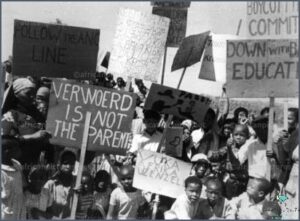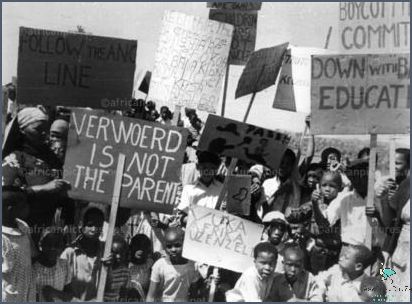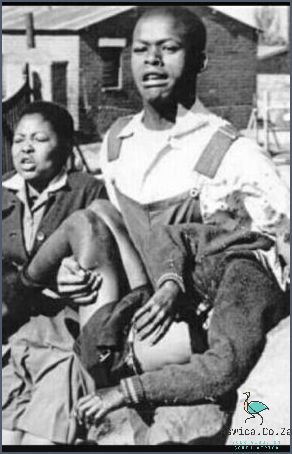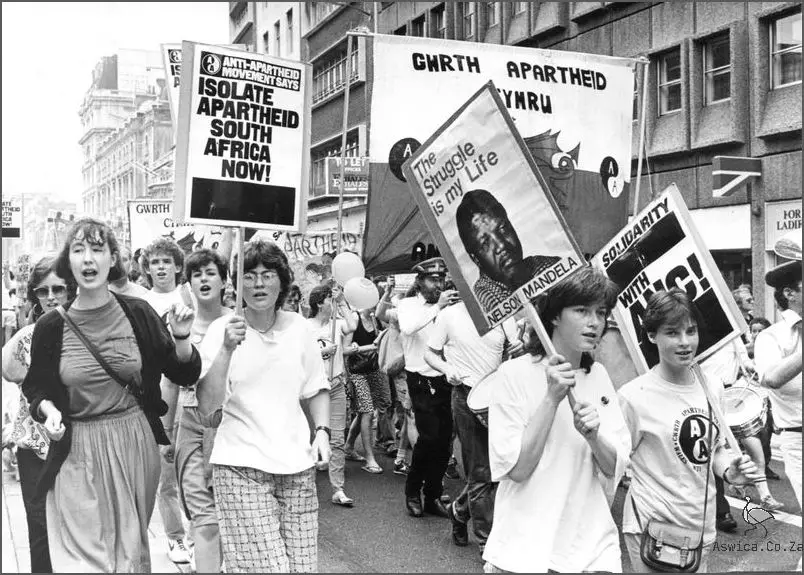
Bantu Education was a system of education implemented in South Africa during the Apartheid era that was designed to restrict the education of black South Africans. It was abolished in 1994 with the end of Apartheid, but its legacy still lingers in the South African education system today. The Bantu Education Act of 1953 was a major part of the Apartheid government’s strategy to separate black and white people and control the education of black South Africans. The Act replaced the existing system of education for black South Africans with one tailored to the needs of the Apartheid government. It aimed to provide only basic skills and knowledge that would enable black South Africans to work in the low-skilled jobs that were available to them. The Bantu Education Act was heavily criticized for its poor standards of teaching and its lack of access to higher education.
In 1976, the Black Consciousness Movement (BCM) was formed to oppose the Bantu Education Act and demand equal educational opportunities for black South Africans. The BCM was successful in mobilizing the public against the Act and in the late 1980s, large protests were held across South Africa demanding an end to Bantu Education. In 1989, the Apartheid government began to make
Contents
How Did Bantu Education End
The Bantu Education Act of 1953 was the end of education for black students in South Africa. The act called for all black students to attend separate schools from white students and receive an inferior education. The government controlled the curriculum and the teachers, which were often poorly trained and paid. The government also controlled the textbooks, which only contained material that was approved by the government. This meant that black students were not learning skills they would need to compete in the job market and to be successful in the future. The Act was eventually repealed in 1979, but the damage had already been done. The effects of the Bantu Education Act still linger in South Africa today, as the education gap between black and white students remains wide.
What was Bantu Education

Bantu Education was a government-imposed educational system that existed in South Africa from 1953-1979. It was created by the Apartheid government in order to control the education of black South Africans and to ensure that they received an inferior education compared to white South Africans. This system was widely criticized for its discriminatory practices and lack of resources.
The Bantu Education Act of 1953 was the cornerstone of the system, and it created a number of new regulations for black education in the country. The act gave the government control over the syllabus and textbooks used for black students, as well as the qualifications and salaries of black teachers. It also restricted the subject matter that could be taught in black schools and limited the amount of funding available to them.
The effects of Bantu Education were wide-reaching, and it had a profound impact on the educational achievement of black South Africans. According to the government, the purpose of the system was to prepare black students for lives of unskilled labor, but in reality, it had a negative impact on the quality of education they received. This led to a significant gap in educational attainment between black and white students, and it has had long-lasting implications for the country.
Bantu Education was officially abolished in 1979, when the South African government introduced a new education system which allowed for more equality in the classroom. It was replaced by the Education Act of 1979, which removed many of the discriminatory elements of the Bantu system and provided more resources to black schools. This was a major step forward in the country’s progress towards creating a more equitable education system.
Overall, Bantu Education was a dark chapter in South Africa’s history that had a lasting effect on the educational attainment of black students. While the Education Act of 1979 was a step in the right direction, it took decades before the educational gap between black and white students began to close. Today, the country is still working to create a more equitable education system, and the legacy of Bantu Education is still felt by many.
The Imposition of Bantu Education

The imposition of Bantu Education in South Africa during the Apartheid era was a controversial and devastating policy that had long-lasting effects on the country. This policy was implemented in 1953 and aimed to provide a separate yet inferior education system to the Black South African population. The policy was a major factor in the racial segregation of the country and had a significant impact on the lives of millions of people.
In essence, the policy was designed to restrict the educational opportunities available to Black South Africans and ensure their inferiority in the face of the Apartheid regime. The policy was implemented by the National Party, which was in power at the time, and resulted in the creation of a separate education system for Black South Africans that was based on rote learning, rather than on the development of critical thinking skills. In addition, the curriculum was tailored to meet the needs of the white minority and was focused on teaching Black South Africans about the importance of labor and obedience.
The effects of Bantu Education were far-reaching and damaging. The policy resulted in an educational system that was vastly inferior to the one available to white students, with fewer resources and less funding. Furthermore, the curriculum was designed to limit the intellectual development of Black students and ensured that the majority of Black South Africans would remain uneducated and unable to challenge the status quo. As a result, the policy severely restricted the economic and political opportunities available to Black South Africans and further entrenched racial inequality in the country.
The policy of Bantu Education was eventually abandoned in the late 1990s, as the country began to move away from Apartheid and towards a more democratic and equitable society. This shift was largely due to the tireless efforts of activists and the tireless struggle of the Black South African people. The legacy of the policy, however, remains, and the country has yet to fully recover from its damaging effects. Ultimately, the policy of Bantu Education stands as a stark reminder of the injustices of the Apartheid era, and the need for continued work towards a more equitable society in South Africa.
The Impact of Bantu Education
The Bantu Education system was a policy of segregation and assimilation in the South African education system that was implemented in the 1950s. It aimed to segregate and control the education of African students in the country, and was based on a policy of racial discrimination and inequality. The program was abolished in 1979, but its effects still linger today.

The Bantu Education system was designed to create an education system that was separate from white education. This system enforced a curriculum that focused on manual labor and domestic work, rather than academic pursuits. African students were taught to accept the idea of racial inequality and segregation, and to accept their place in society.
The policy of Bantu Education had a profound impact on the educational attainment of African students. After the system was implemented, African students saw a dramatic decrease in educational achievement. This was due to inadequate funding, limited resources, and the lack of qualified teachers in African schools.
The Bantu Education system also had a lasting impact on the social and economic development of African communities. The policy had a negative effect on African students’ access to higher education, and the lack of opportunity and resources in African schools resulted in a decrease in the number of skilled and educated African workers.
The policy of Bantu Education was finally abolished in 1979, and the South African government began to implement a more equitable education system. However, the legacy of the Bantu Education system still affects African communities today. The lack of access to quality education has resulted in poverty and inequality, and the legacy of inequality that was created by the Bantu Education system continues to this day.
It is important to remember that the legacy of the Bantu Education system still affects African communities today, and we must continue to strive for a more equitable education system for all South Africans. We must remember the effects of Bantu Education and use it as a reminder to strive for a more equitable and equal education system for all.
Conclusion
Bantu education in South Africa came to an end in the early 1970s. The system had been in place for over two decades and had been highly controversial. Many black South Africans felt that it was a tool of oppression, while others believed that it was necessary for the development of the country. In the end, the system was dismantled and replaced with a more equitable one.




